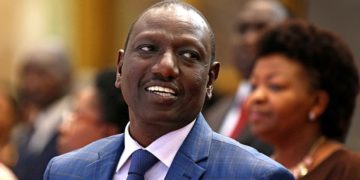[ad_1]

The nine final days of the lockdown extension will be crucial, experts say, as the country grapples with the spread of the novel coronavirus while attempting to resuscitate an ailing economy.
Cabinet met on Monday to discuss unfolding events and a crucial socio-economic plan to find ways to buffer the impact of the stalled economy on the poor and vulnerable.
As of Monday night, the outcome of the meeting was not yet known.
On Monday evening, the ANC’s National Working Committee called for an “effective stimulus package” that will enable the country to respond to the crisis.
Also, as of Monday night, 58 people had died from Covid-19, with 3 300 confirmed cases.
With nine days left of the lockdown, here are five things experts say the government must get a handle on:
1. Community transmissions
2. A social economic relief strategy
3. Ramping up testing
4. A public education campaign
5. Workplace screening
A closer look at each of these five steps:
1. Community transmissions
Crucial to the next nine days will be the ramping up of testing as well as getting a handle on the number of community transmissions. Chairperson to the ministerial advisory committee advising government on Covid-19, Professor Salim Abdool Karim, said counting “active” and “passive” cases will be critical.
“In the previous week, we’ve only had passive case findings, not active ones, because we didn’t have community health workers (finding cases) in place.
“This means that the data government had was based largely off of people who presented themselves to clinics and hospitals to be tested. Now, having rolled out a programme where community healthcare workers are actively seeking out potential cases and tracking down their contacts, these “active” case findings can also be counting. It is hard to tease the two out… so we are trying to separate the two,” he said.
Until the government knows how many people are being referred to hospitals and clinics by community healthcare workers versus those who present themselves, it will not know the full spread of the disease.
WATCH | Local doctors and engineers build makeshift emergency ventilator using everyday items
Karim did not want to be drawn on whether the lockdown had worked or not, saying there were a variety of factors that would influence that, and it was not his area of expertise. But he said that community transmissions was one of the criteria that could be used to assess the lockdown’s success.
Karim was previously quoted saying that the lockdown had now achieved its purpose and that there was not much more to be gained from it.
But he explained to News24 on Monday: “I have not said that the lockdown should or should not be ended. I just suggested some criteria for the decision. I have also not said whether the lockdown has or has not achieved its goals. I have shown that the cases are not going up rapidly up to 9 April. I have not said anything on whether the lockdown should end as this is not my domain to comment.”
2. Economy and social relief
Experts say government also needs to spend the next nine days driving home the basics around the illness, which is not reaching informal settlements.
As fears rise over the prospect of hunger riots, there have been increasing calls for the government to implement some kind of relief for the poor. This could come in the form of a child support grant top-up, as suggested by experts, or a top-up to all social grants.
Cabinet deferred a social economic relief strategy to a meeting on Monday.
Economist Dawie Roodt says the government must open up the economy as a matter of urgency.
“It’s becoming clearer by the day that the South African economy is suffering horrendous damage. The sooner we open up this economy, the better.
“It’s a stroke of the pen. We know enough by now. We know there are certain groups that are more vulnerable than others, the elderly as an example, people with underlying conditions, they should get first priority and they should be protected.
“Old age homes for example, measures should be put in place and people should be made aware. And we should still be following social distancing practices and so on, I am not saying we should stop doing that.
“But we have to understand that this loss of productive activity and time will lead to a lot of deaths as well. So it’s not a matter of the economy or lives, that’s not the case. It’s a matter of lives and lives,” he said.
3. Ramping up testing
The government has nine days in which to significantly ramp up testing to reach Health Minister Zweli Mkhize’s target for the end of April of 30 000 tests a day.
Targets set by Mkhize for testing capacity to reach 30 000 a day by the end of April are still far from being achieved. Mkhize on Saturday acknowledged that, while testing levels had increased significantly, more needed to be done. For the week 12 to 19 April, 39 658 tests were done, an average of 4 957 a day, compared to the previous week’s average of 3 527 and a total of 24 692.
It is also well below another target set of 10 000 a day, which was meant to have been achieved by mid-April.
So far, testing numbers are only reflecting more than 5 000 for six out of the 14 days examined.
A significant step toward increasing this capacity, according to National Health Laboratory Service (NHLS) chief executive Dr Kamy Chetty, is the arrival and validation of test kits for hundreds of GeneXpert machines the NHLS plans to use.
READ MORE: Coronavirus: Don’t underestimate the enemy, says Prof Karim
A total of 10 000 kits had arrived in the past week, and a further 20 000 are expected this week, Chetty said. These tests are fully automated and provide results in under 45 minutes.
“We are also using the Cobas 6800 and 8800 testing machines [made by Roche in Switzerland]. We have been hoping to get more of those kits because the machines are fully automated, but the production of those kits is limited,” Chetty said.
“So far, we have been able to meet the demand for the number of tests we have been given to do each day, but we are hoping to ramp up the numbers.
4. A public education campaign
Kerrin Begg, public health specialist at the University of Stellenbosch, said a “massive education campaign” is needed.
She said that, while the government has been successful on social media, with its easy-to-understand infographics and regular provision of information, it’s not clear that this is getting to communities in informal settlements.
Many people in poorer or informal settlements remained in “complete denial” about Covid-19, or did not want to identify themselves or their contacts if they were showing symptoms for fear of ostracisation. Government-provided isolation and quarantine facilities are also being refused, Begg said.
Communities needed to feel empowered and not be treated as sheep, who merely have to follow the government’s instructions, she said.
“This is about behaviour change,” she said, and that would not come through compliance, but through community buy-in.
“That’s really the missing piece,” said Begg.
5. Workplace screening
According to Begg, the screening currently being undertaken is showing a significant spread of the disease in workplaces.
In many cases, essential services workers are not able to practice physical distancing at work. Ways to get around this could be to ensure that there is no cross-contamination between shifts, with a particular shift staff entering and exiting through different entrances to avoid coming into contact with each other, for example.
Workplace screening was essential to stop the spread, said Begg.


















